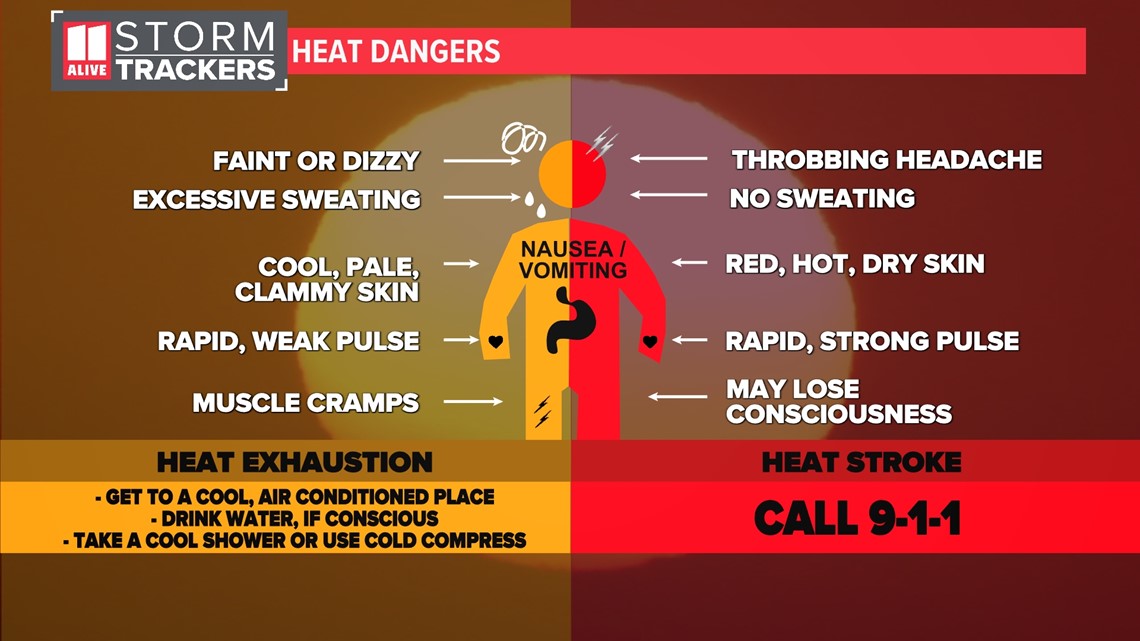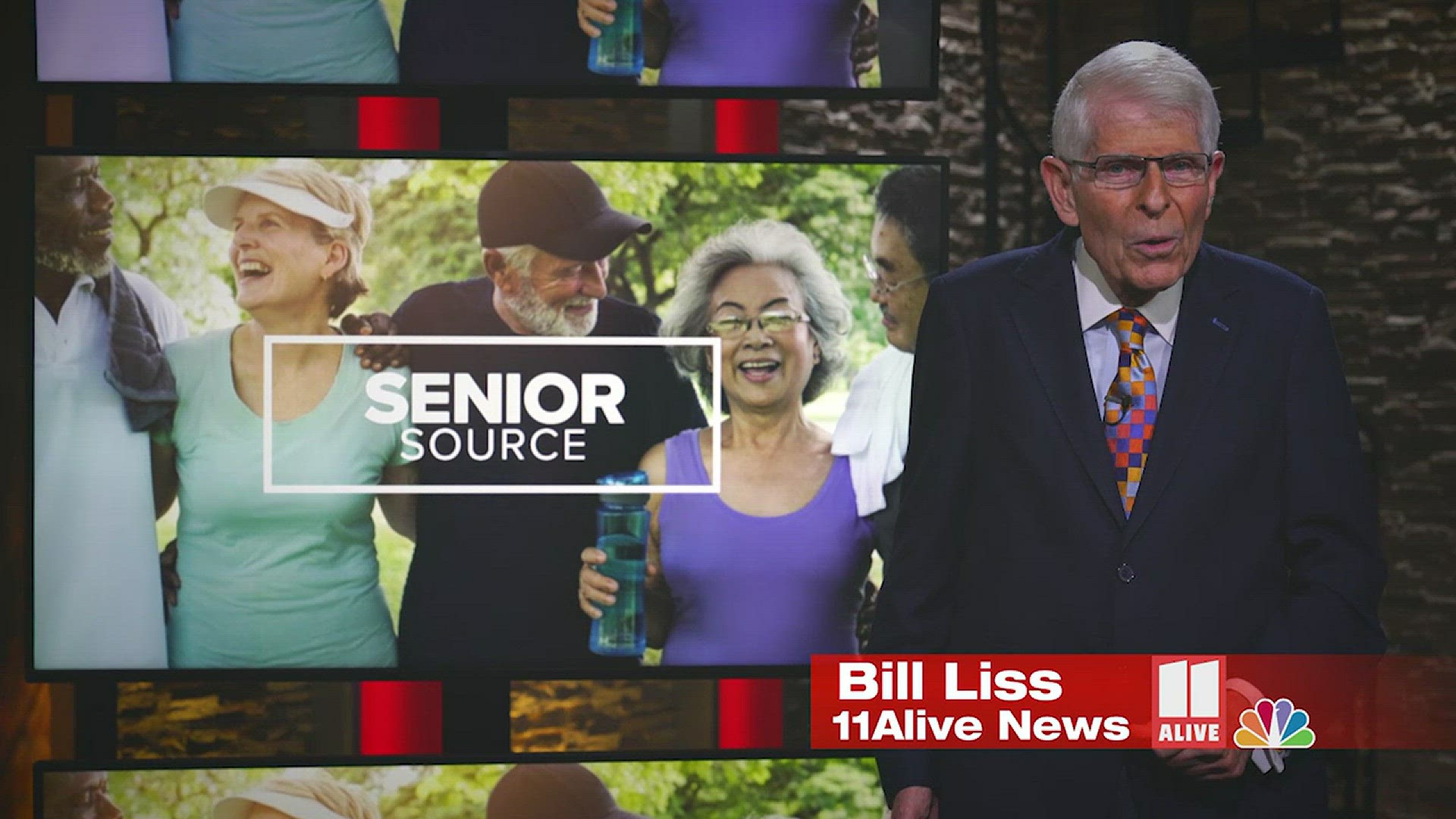ATLANTA — For seniors, the extreme heat of summer can mean extreme complications like dehydration, which can lead to heat exhaustion and heat stroke.
Here's what to know to make sure you're prepared.
Heat exhaustion vs. heatstroke: What's the difference?
You may feel faint or dizzy if experiencing head exhaustion, while a throbbing headache is likely indication of a heat stroke, according to the National Weather Service.
Both conditions are dangerous, but knowing the difference can help you know how to best respond.
This chart below from 11Alive's meteorologists is a great tool to keep track of which conditions are associated with which condition.


How to prevent it
When outdoors in extreme heat, drink lots of water; stay in the shade; use a fan; and use cold wash cloths on your neck and arms.
Keep a careful watch for weakness, headache, muscle cramps or dizziness, too.
If the symptoms persist call 911 at once.
For added relief, call the Metro Atlanta United Way Help Line at 211 on weekdays until 7 p.m. to locate metro Atlanta senior center cooling stations as they open.
On the weekends, go to the United Way website at www.211.unitedwayatlanta.org.
==========
LINKS FOR ADDITION INFORMATION:

